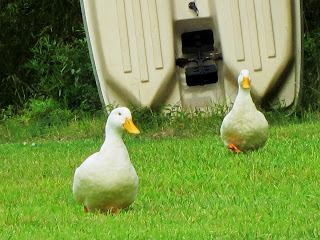(The result of watching too much television over the summer)
Background
Lead
Character Personality Traits (choose two):
Brooding
Charming
Mysterious
Obsessive/Compulsive
Quirky
Rakish
Socially Inept
Lead
Character’s Traumatic Past (choose one):
Parent/sibling/spouse/child murdered by unknown
Master Villain
Parent/sibling/spouse/child disappeared,
unknown Master Villain supsected
Supporting
Cast (all positions obligatory):
Antagonistic Love Interest
Comic Relief
Hot Chick
Minority (select male or female)
Supervisor Who Does Not Like Lead
Supporting
Cast Traits (assign at will to above characters):
Emotionally invested/overly empathetic
Married (preferably to another member of
supporting cast)
Trivia champion/movie buff
Voice of reason to keep Lead in check
Outsider whose ignorance allows other Supporting
Cast to explain science
Episode
Template
Exposition
(choose one):
The innocent outing (family picnic,
birthday party, beach trip, romantic encoutner, etc.)
è Discovery of
dead body by child or pet
The red herring (crime in progress,
chase scene, etc.)
è Discovery of
dead body by character who audience thought would be either victim or murderer
Story
Development (all elements obligatory, order flexible):
Investigation at crime scene
Lead makes clever quip and/or intriguing
discovery that no one else notices
Exposition of victim ID and backround
information by Supporting Cast
Character development/drama involving
private life of Lead
Montage sequence in which Supporting
Cast processes evidence in lab (realism optional)
Identification and apprehension of
Suspect Number 1
Questioning and exhoneration of Suspect
Number 1, who leads to Suspect Number 2
Questioning and exhoneration of Suspect
Number 2, who leads to Suspect Number 3
Repeat previous three steps as necessary
Return to forensic evidence: second
montage sequence in lab
Unrelated situation in private life of
Lead, resulting in breakthrough on case
Climax/Resolution
(choose one):
Return to previous Suspect who had been
mistakenly disregarded
Dramatic standoff leading to lengthy
confession by Culprit
Shootout/explosion that kills Culprit
Surprise twist revealing Culprit that
Lead did not suspect
Ending
(elements can be combined):
Explanation of what brought Lead to
suspect Culprit when no one else did
Heartfelt scene resolving episode’s
private drama
Moment in which Lead and Antagonistic Love
Interest almost but do not quite confess their feelings
Optional
Elements (to be distributed over course of season):
Wounding of or imminent danger to Supporting
Cast
Kidnapping of Antagonistic Love Interest
or family member
Meddling by Supervisor and/or outside
agency
Discovery that case is connected to Unresolved
Mystery and Master Villain
Series
Story Arc
Season
One:
Crime:
Rely on episodic narrative while hinting
at Unresolved Mystery
Drama:
Establish characters
Work up chemistry between Lead and Antagonistic
Love Interest
Season
Two:
Crime:
Continue to rely on episodic narrative
Show more gore to retain audience
interest
Drama:
Intensify relationship with Antagonistic
Love Interest
Kill off at least one character in a
tragic fashion
Season
Three:
Crime:
Find stranger and stranger ways for
people to be killed
Begin to lose interest in episodic narrative
Refocus on Unresolved Mystery of Lead’s
traumatic past
Include at least one comic/halucinated
alternate reality episode
Drama:
Manufacture break in relationship with
Love Interest
Season
Four:
Crime:
Episodic crime becomes a minor plot
point
Master Villain becomes central focus
Massive conspiracies surface
Drama:
Lead and/or Antagonistic Love Interest
is seriously wounded and/or has a mental breakdown
Lead and Antagonistic Love Interest
decide to be “just friends”
Season
Five and following:
Crime:
Episodes grow more and more bizarre
Lead comes within an inch of solving
Unresolved Mystery and catching Master Villain
Drama:
Supporting cast replaced as actors quit
Lead and Antagonistic Love Interest
become passionately involved, break up, marry, or procreate (choose one or
more, accordingly)
Final
Season:
Crime:
Abandon all pretext of plausibility
(death by air compressor, fingerprints from linguini, etc.)
Let Lead finally catch Master Villain
Drama:
Realize relationship between Lead and Antagonistic
Love Interest has killed series
Manufacture satisfying wrap-up for
whatever viewers are still hanging on



.JPG)
.JPG)























